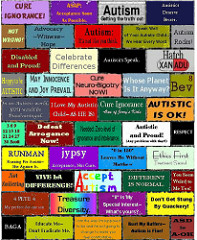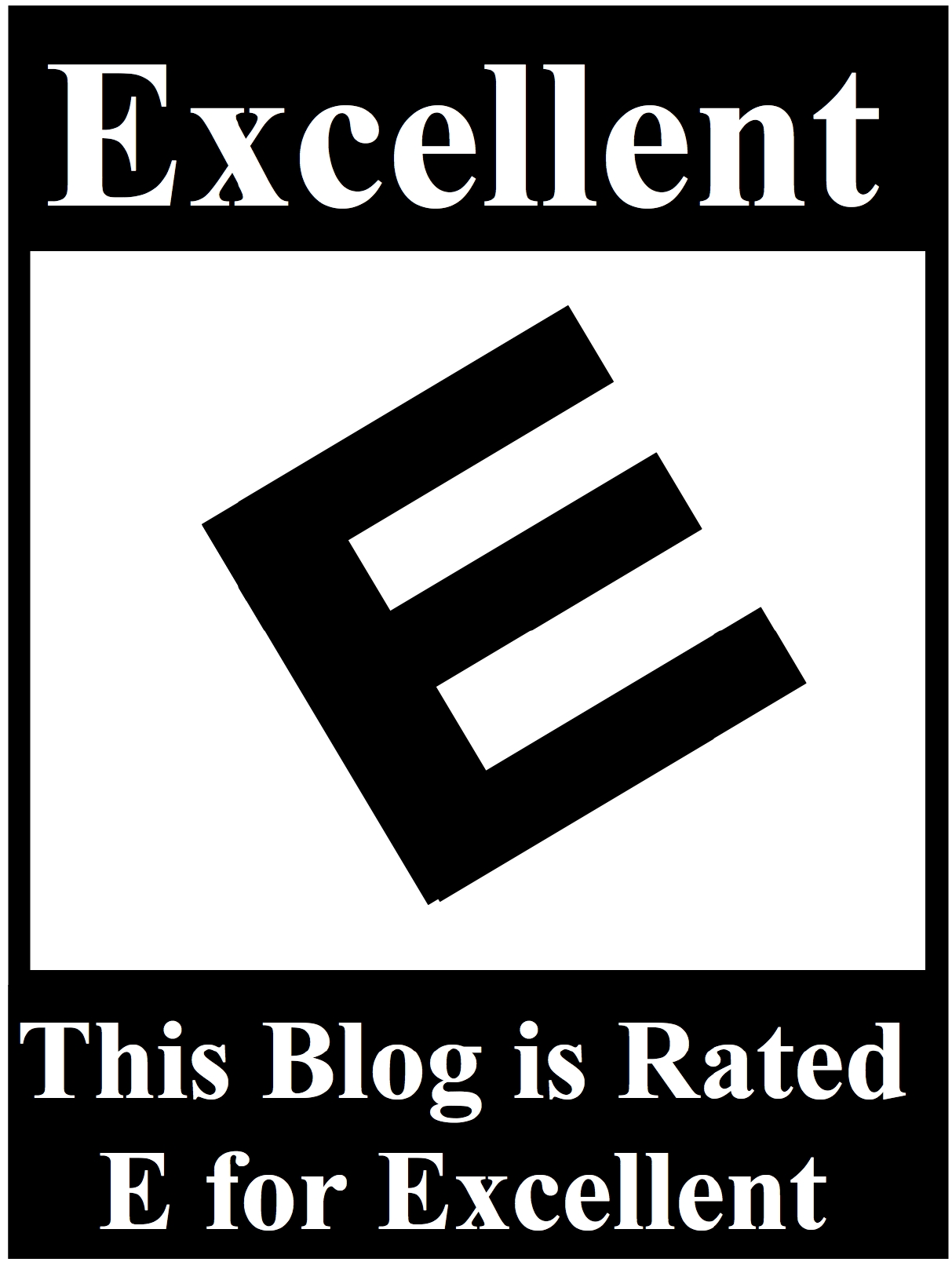For all of the philosophic ruminating about words and language and the uses of signifiers, there is yet a power to creating words, to naming things. Once we create a word, we now have yet another handy mental place-maker for retrieving that information. Once we create a word, we can share it with other people, thus giving ourselves a tool for introducing ideas and discussing them. Naming is a kind of power, for it can help create something de novo, and “give flesh” to nascent ideas.
When we find or create and use words, we can spread these new ideas and discuss them. Just as disciplines need their specialised jargon, and new disciplines need new specialised jargon, other fields of human endeavour need their jargon. Although the jargon of a group can be used badly to outgroup, it can also be used constructively to serve as a tool for unifying dissimilar people and sharing ideas, and it can also “legitimise” groups by giving them something of a more “real” or “solid” presence.
Sometimes I make up words because they don’t exist, but I still need them. Frequently I borrow somewhat obscure words from various disciplines. And sometimes people borrow words from other languages. One of my favourite word-nerd books is, They have a word for it: a lighthearted lexicon of untranslatable words & phrases by Howard Rheingold.
As we endeavour to create new paradigms in the world, we need extra tools and new tools in our toolboxes. So here’s my first installment for you (I’ll add some words of my own eventually-soon). Here’s a list of words you didn’t even know you needed, many with my own (necessarily briefer) definitions, and my own pronunciations:
Animateur ah-nee-mah-TOOR (French) n. Someone who can take complicated ideas and processes and explain them to the general public. Animateurs are superb teachers of theoretical or technical subjects, those who produce instructions rather than documentation; the world of technical writing has far too few animateurs!
Bettschwere BET-schvair-eh (German) n. When you are too profoundly, guiltlessly lazy and “bed-heavy” to do anything as physically and mentally demanding as getting out of bed (not to be confused with being mentally wrung out or suffering from bone-tired exhaustion). Sunday mornings are just built for this. Also a chronic condition of teenagers.
Bricoleur bree-coh-LURH (French) n. Someone who builds or designs things just by messing around rather than formally designing an explicit plan first. Bricolage is the process of tinkering around intuitively.
Contestaire kohn-tess-TAIR (French, from the 1968 revolution) n. The person who challenges an established order, not to be confused with one merely being a rebel or troublemaker or violent provocateur. Rheingold says, “A contestaire is not the same as a rebel, for rebels often become the establishment when their revolutions succeed. A contestaire would continue to ask troublesome questions after the revolution.”
l’Esprit de l’escalier ehs-PREE duh les-kal-YAY (French) n. Literally the “spirit of the staircase”, referring to when you think of that great retort or reply — after it’s way too late and the moment has passed.
Fisselig FVIS-se-lich (German) adj. Flustered to the point of incompetance due to too much supervision. A lot of people feel fisselig when being taught to drive.
Maya MAH-yah (Sanskrit) n. Rheingold defines it well: “The mistaken belief that a symbol is the same as the reality it represents.” Foolishly believing that your mental map is the same as the territory or world that it models.
Nadi NAH-dee (Balinese) v. Rheingold again: “To temporarily inhabit another dimension. … If you know a thinker or an artist or an ‘absentminded professor’ who seems to be ‘in another world’ part of the time, don’t insult or disturb the entranced one: He or she may simply be in nadi.” I’m in nadi a lot; my mom used to complain that I was “always off in my own little world”. (How would I be in someone else’s little world?)
Ohrwurm OAR-vurm (German) n. Literally an earwig insect, refers figuratively to that song that gets stuck in your head, or a musical meme infecting a population that becomes a pop hit. I use the term “orhwurm obsession” to refer to that tune I put on repeat in my music player to fill my mental background and help me concentrate. Ohrwurm obsessions can last for days or weeks and then suddenly the song is tiresome and I must find a new one, and feel adrift until I have found one that fits.
Papierkrieg pah-PEER-kreeg (German) n. The annoyingly complicated bureaucratic paperwork required for making a complaint/ return/ insurance claim/ protesting a ticket/ petitioning for services, et cetera ad nauseam. Rheingold eloquently explains, “Papierkrieg is more deliberate than red tape. Bureaucracies produce red tape the way sawmills produce sawdust or cattle produce manure, as a natural and unwitting byproduct that has to be disposed of or waded through. Papierkrieg is a consciously created obstacle.”
Schlimmbesserung shlimm-BESS-air-ung (German) n. When “new and improved” isn’t: another one of those so-called “improvements” that really just make life more difficult and complicated; the bane of latent luddites everywhere.
Tartle TAR-tl (Scottish) v. To hesitate or be slow when recognising a person or thing. Those of us who are faceblind tartle a LOT.








Anonymous said,
8 February 2010 at 20:37
Here’s another fun concept: Concorde Syndrome. This refers to the fact that the driver of a vehicle is the one least bothered by the noise made by the vehicle. The name is derived from the now-retired Concorde double-sonic airliner, one of the loudest vehicles ever made. If you were to take off from O’Hare Field piloting one, you wouldn’t be bothered by the noise but you could wake up whole suburbs!
Sound check « Andrea’s Buzzing About: said,
15 October 2009 at 23:34
[…] What’s your least favorite Ohrwurm? (song that gets stuck in your […]
Not Flapping My Lips « Andrea’s Buzzing About: said,
9 August 2008 at 5:08
[…] ahead for a script to use sometime again soon, because like many people I suffer terribly from l’Esprit de l’escalier, and can never think of the bon mot or good retort or thought-provoking reply until the moment has […]
David Andrews M. Ed. (Distinction) said,
12 April 2008 at 0:51
Meillä on tommosii yhdys-sanoja suomen kielessä, niin kuin valkosipuli.
We have those sorts of compound words in Finnish language, like garlic.
Suzanne said,
6 August 2007 at 15:12
I think my Mom needs this book as well. My Frau-Professorin hated when I strung words together. It just seems so natural auf Deutsch.
Bev said,
6 August 2007 at 2:45
Compound? Yes, I think I’ve heard that one before…Perhaps I was in nardi for a moment or tartled in remembering.
qw88nb88 said,
6 August 2007 at 2:35
Well Bev, in English the term is “compound word” (e.g. roadbed). The first chemists were German, which is why we have these incredibly long compound chemical names, like paradichlorobenzene (that’s the stuff in mothballs — another compound word).
Bev said,
6 August 2007 at 2:07
You’ve sold a book! I love the way words are built in the German language. What’s the word for that, I wonder, stickingwordsyoualreadyhavetogether?
Katharina said,
8 February 2011 at 12:28
Ironically, German doesn’t have a word for compound words. It’s ‘zusammengesetzte Wörter’, which is, since it’s two words, obviously a waste of space between words (Wortzwischenraumverschwendung).
Suzanne said,
6 August 2007 at 1:43
Bricoleur That’d be me. There were a Lot of them I did know I needed. thanks. One comments. heee heee.